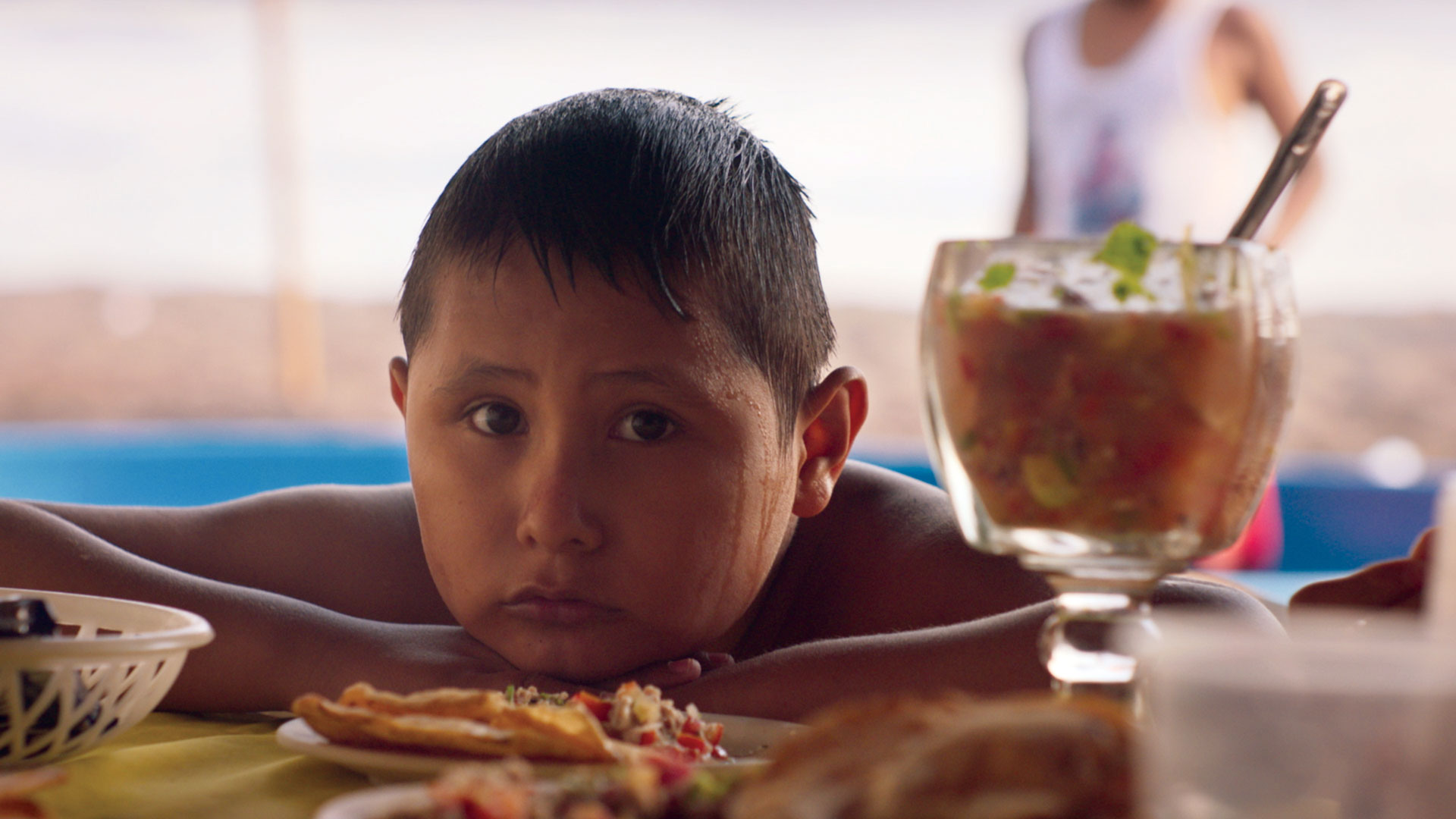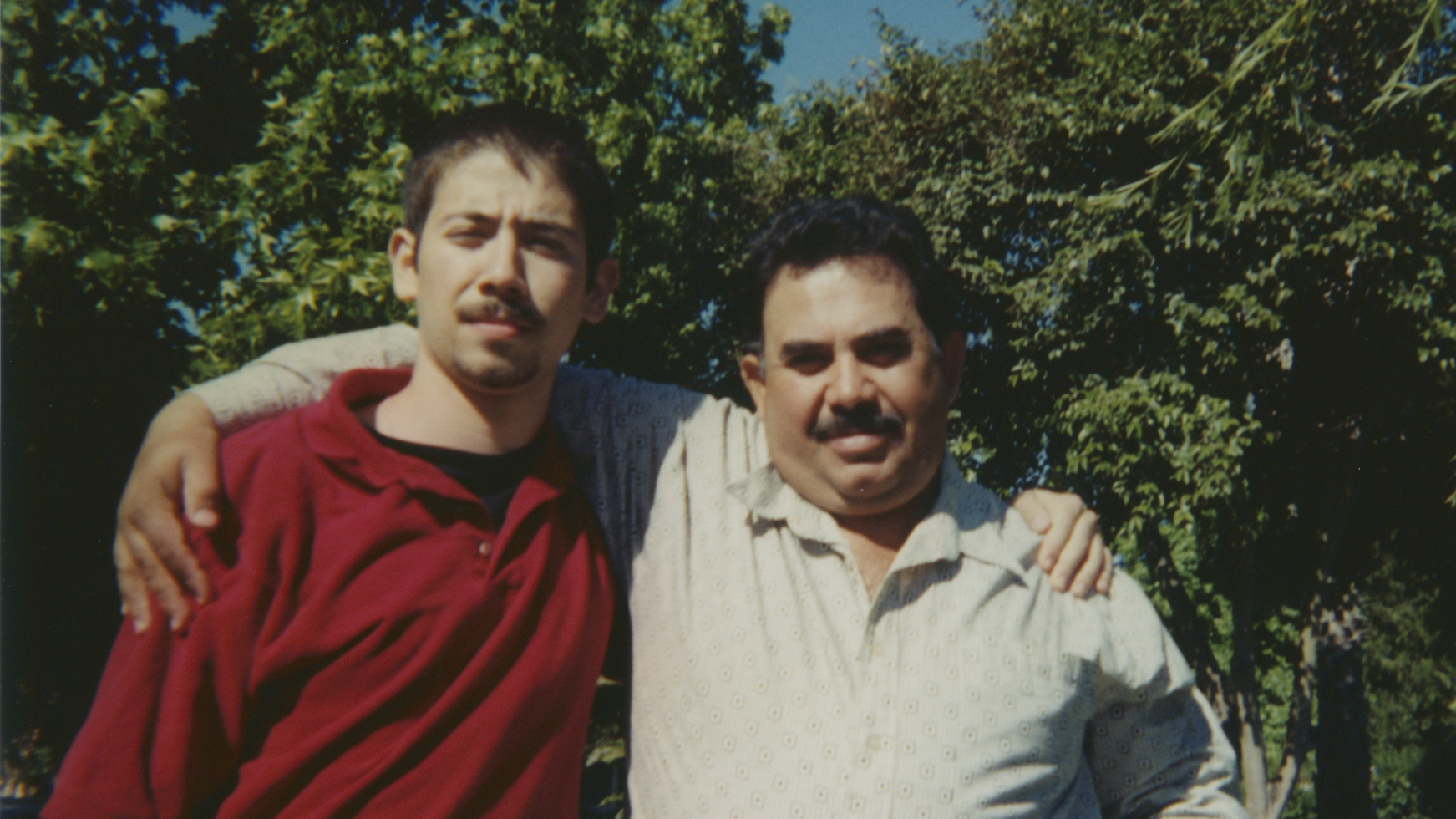In 2012, Rodrigo Reyes was working as a Spanish criminal interpreter, during which he met many Mexican immigrants who were facing prison. One of those was Sansón Andrade, who was charged with double murder. Despite never holding the gun, Sansón was sentenced to life in prison without parole.
For many months after, Rodrigo couldn't stop thinking about Sanson's case. "I felt that we had a lot in common, which made me feel like a had a strong connection to him, “ Rodrigo tells me over Zoom. “We were both around the same age and had both migrated from Mexico around the same time to the United States."
Rodrigo finally sent Sansón a letter explaining how he wanted to get to know his story, that he felt a connection. This feeling was mutual: Sansón replied by saying he was thinking of him as well. "He remembered me," Rodrigo recalls.
This connection inspired a project, which ultimately resulted in ‘Sansón and Me’ - a film about Sansón's life, from when he was just a kid growing up on the Mexican Pacific coast to his conviction in the US. Sansón’s mistakes are not justified, but the film also incriminates a legal system that disproportionately criminalises young, uneducated Mexican immigrants in the US.

Rodrigo Reyes was born in Mexico City in the 1980s but was raised in a bicultural environment and he spent most of his life travelling between Mexico City and the United States. He recalls this migration process as something that was done by many families in those days. "Even middle-class people, even people who had the opportunity to go to college, they couldn't find jobs in Mexico," Rodrigo comments.
Struggling to make a living out of being a filmmaker, Rodrigo found himself a job as an interpreter in the criminal court.
"Being an interpreter was really interesting, and I never thought that I would be good at it. I never even knew this job really existed," Rodrigo comments. For Rodrigo, this was a opportunity to really get to know the Mexican community and he helped underrepresented, mainly young, uneducated men who spoke little to no English navigate the justice system.
When Rodrigo first met Sansón in court, Rodrigo was struck by the offender’s good manners and respectfulness, despite not being able to speak English. Far from being a violent individual he was thoughtful and sensitive. "It felt so unfair that his sentence could be so severe in a situation where you could honestly see the mistakes happening all the time in his life. I wanted to know how he got there."
In the film, Rodrigo recreates some of the most important meetings and talks he had with Sansón; we see the positive Sansón in prison and the introspective, almost poetic Sansón in the letters.
"Those visits (in jail) in the film are very important because it brings you into the space of prison but also brings us into our friendship; it brings you into this process of two people getting to know each other, which was really wonderful."

The scenes referring to Rodrigo and Sansón’s face-to-face meetings and the trail are recreated in an obscure theatre. "Why in a theatre?" I ask.
"I think the importance of the theatre space is that it reminds us that this is a place of memory. It's trying to tell you that this is all a memory. This is something that is being discussed from a very personal and intimate place. It was the best way to represent the melancholy feeling behind these memories. "
Rodrigo also set out to find Sansón’s family and get them to participate in the movie. But it was not easy...
“When I met them, they were in shock and still processing Sanson’s sentence. Sansón hadn't connected with them for years. They heard about the case details through me; there wasn't a direct line of communication."
The trust wasn’t there initially, Rodrigo admits. “When you watch the film, you can see how it evolved in layers.You see the initial excitement, but then the questions start to happen as the work begins."
The film was not created to just help Sansón or change his case; but Reyes is working hard so that the authorities can watch the film, not only for Sansón but thousands more in the American penitentiary system who have effectively been ‘disappeared’ from society into the prison industrial complex that profits from jailing people.
"It's a tough situation. But I think even in that toughness, there's a lot of love, and there are a lot of things that we can support and be empowered by."
For Rodrigo, this film is meant to open a series of questions. To let people ask themselves what justice really means and challenge the idea that somehow justice only happens in one place.
And what does he think people in the UK can learn?
"For UK audiences it's a different conversation because the way that crimes are handled in the UK is not as aggressive as it is in the US. For folks in Mexico, the film is really about the people who have left and some of the struggles they go through, you know, some of these terrible tragedies that happen, and maybe asking ourselves, Why? What could we have done in Mexico to maybe change that path?" Rodrigo reflects.
Hoping that people can connect with Sansón, Rodrigo admits he wants people empathise with him and understand his story. "I wanted you to feel like you were in this kind of wonderful poem or song about Sansón and myself, and that you could see his memories with a lot of beauty."
Beautiful moments yes, but it also leaves you wrestling. "I think for immigrants, and for Mexican immigrants in particular, we all know someone who has had a tragedy where immigration just worked against them at every level. Because you're set up to fail in many ways as a migrant, there are so many factors against you. And so you fall in love with Sansón for that reason, because you know that he has fought and struggled. And I think that makes him very human. Even if he has made some mistakes in his life. You get the full picture of a very human and very wonderful person with a lot of potential.”
As for his relationship with Sanson, they still talk as much as they can, Rodrigo says; Sanson calls him when he can and he will watch the film next year when it is on television.
"I think Sansón would love London,“ he says finally. “He loves reading and he loves learning, and I think London would be a very special place for him.”
Sansón and me is out now in cinemas https://dochouse.org/cinema/screenings/sans%C3%B3n-and-me















